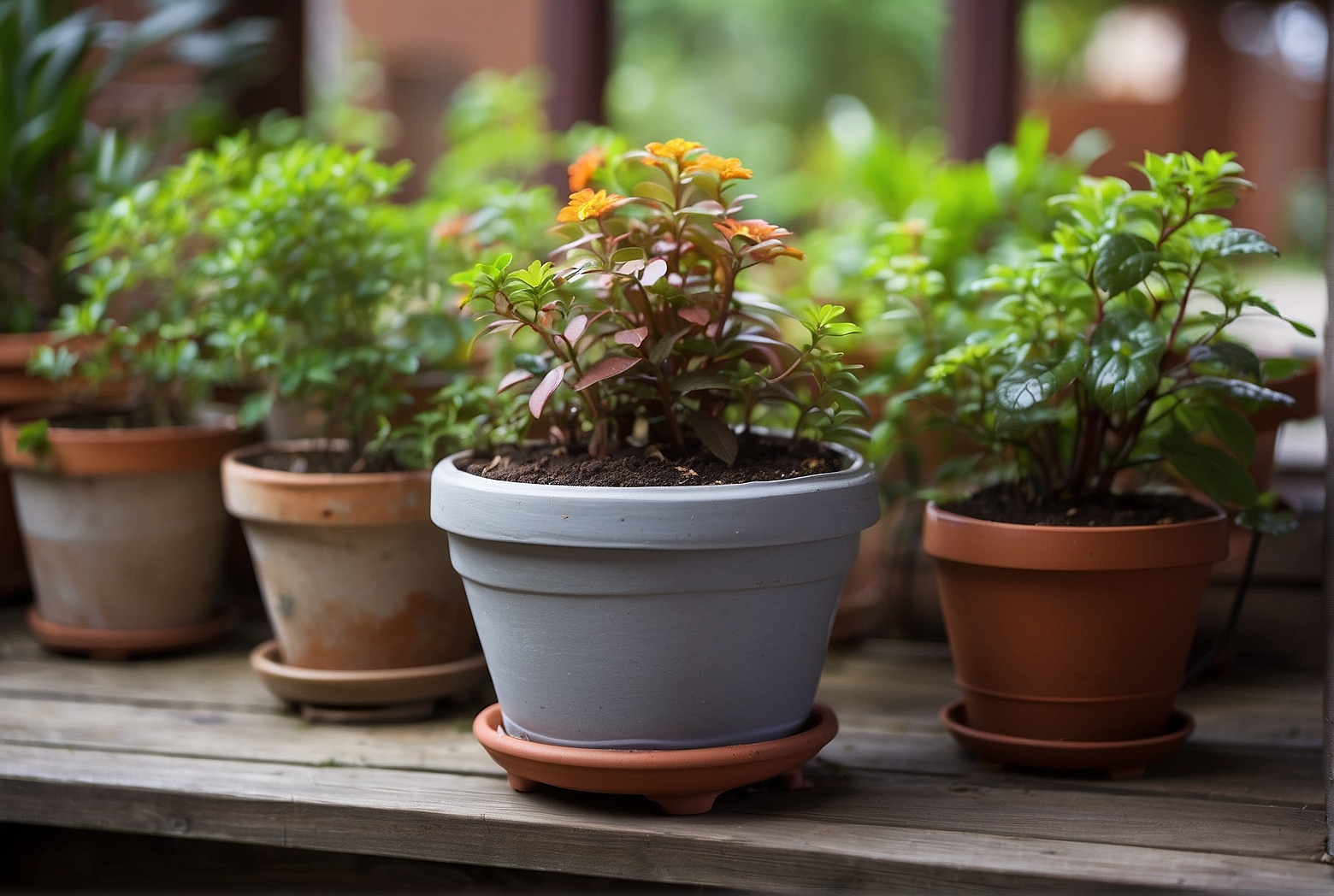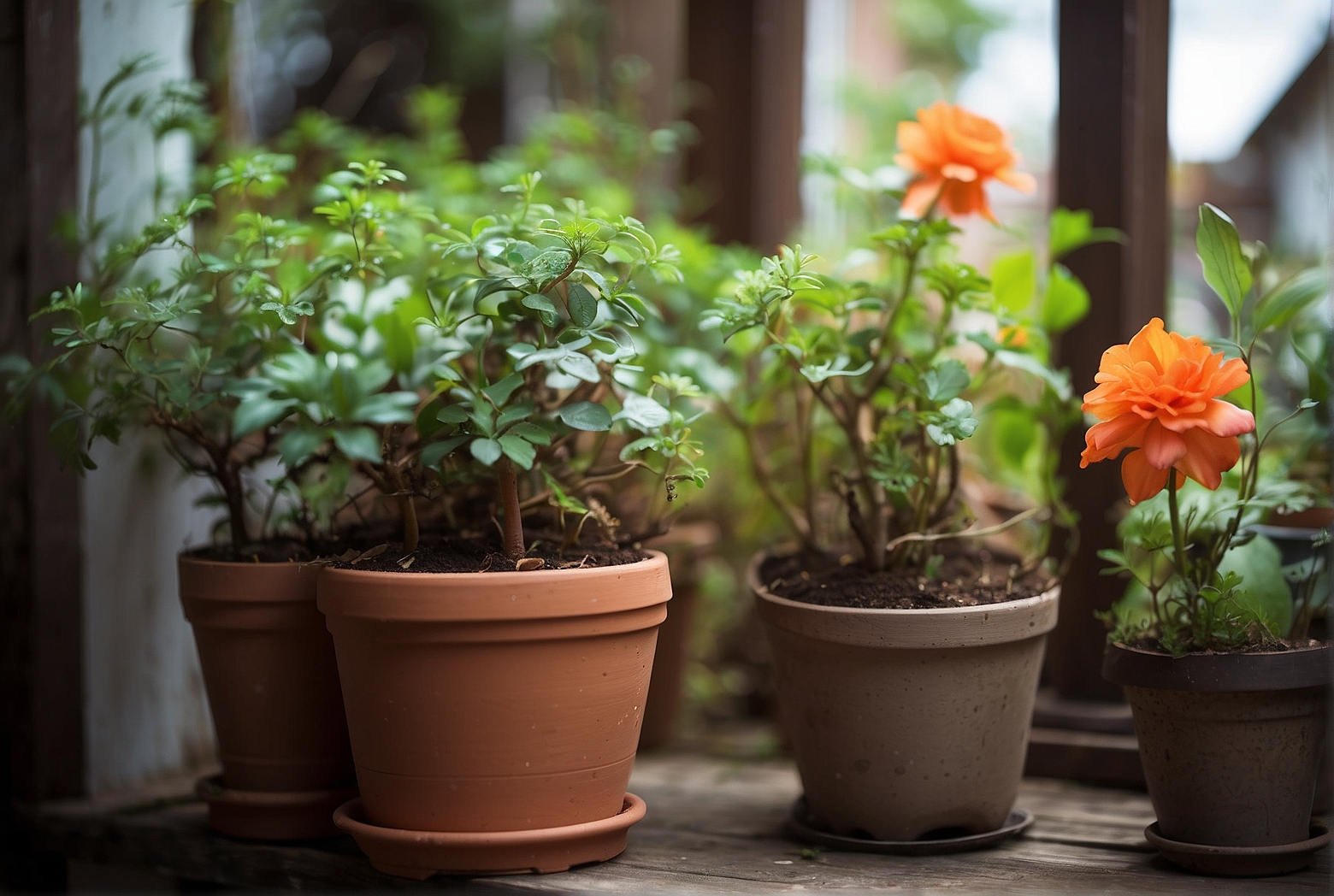If you’ve ever asked yourself, “why do my potted plants keep dying?†you’re not alone. Many people struggle to keep their potted plants alive and healthy. The good news is that there are a few simple steps you can take to ensure your plants thrive. In this article, we’ll discuss the most common causes of potted plant death and how to prevent them. We’ll also provide tips on how to properly care for your potted plants so they can live a long and healthy life.
Identifying Common Causes of Potted Plant Death and How to Avoid Them
Potted plants are a great way to bring life and beauty into your home, but they can be difficult to keep alive. Many potted plants die due to common causes, but with the right care, you can keep your plants healthy and thriving.
One of the most common causes of potted plant death is overwatering. Too much water can cause root rot, which can kill the plant. To avoid this, make sure to check the soil before watering. If the soil is still damp, wait a few days before watering again. Additionally, make sure to use a pot with drainage holes so that excess water can escape.
Underwatering is also a common cause of potted plant death. Without enough water, the plant will become dehydrated and eventually die. To avoid this, make sure to water your plants regularly. Check the soil before watering to make sure it is dry, and water until the soil is damp.
Light is also essential for potted plants. Too much light can cause the leaves to burn, while too little light can cause the plant to become weak and eventually die. To avoid this, make sure to place your plants in an area that gets the right amount of light.
Finally, pests can also be a common cause of potted plant death. Insects such as aphids, mealybugs, and spider mites can feed on the leaves and stems of the plant, causing it to become weak and eventually die. To avoid this, make sure to inspect your plants regularly for signs of pests. If you find any, use an insecticidal soap or neem oil to get rid of them.
By following these tips, you can keep your potted plants healthy and thriving. With the right care, you can enjoy the beauty of your plants for years to come.
Tips for Keeping Your Potted Plants Alive and Thriving
1. Choose the Right Pot: Select a pot that is the appropriate size for the plant you are growing. Make sure the pot has drainage holes to allow excess water to escape.
2. Use Quality Potting Soil: Use a quality potting soil that is specifically designed for potted plants. This will ensure that your plants have the right nutrients and moisture levels.
3. Water Regularly: Water your plants regularly, but don’t over-water them. Check the soil before watering to make sure it is dry.
4. Provide Adequate Sunlight: Make sure your plants get enough sunlight. Most plants need at least six hours of direct sunlight each day.
5. Fertilize: Fertilize your plants regularly to ensure they have the nutrients they need to thrive.
6. Prune: Prune your plants regularly to keep them healthy and encourage new growth.
7. Monitor for Pests: Monitor your plants for pests and take action if you find any.
Following these tips will help ensure that your potted plants stay healthy and thrive. With proper care and attention, your plants will be a beautiful addition to your home.
How to Diagnose and Treat Common Potted Plant Diseases and Pests
Potted plants are a great way to bring life and color into your home or office. However, they can be susceptible to diseases and pests, which can cause them to become unhealthy and even die. Knowing how to diagnose and treat common potted plant diseases and pests is essential for keeping your plants healthy and vibrant.
Diagnosis
The first step in treating any potted plant disease or pest is to accurately diagnose the problem. Common signs of disease or pests include discolored or wilted leaves, spots or lesions on the leaves, and the presence of insects or webs. If you notice any of these signs, it is important to take a closer look at the plant to determine the cause.
If the plant is wilting, it could be due to a lack of water or a root rot caused by overwatering. If the leaves are discolored, it could be due to a nutrient deficiency or a fungal infection. If you see spots or lesions on the leaves, it could be due to a bacterial infection or insect infestation. If you see insects or webs, it is likely due to an insect infestation.
Treatment
Once you have accurately diagnosed the problem, you can begin to treat it. If the plant is wilting due to a lack of water, simply water it more frequently. If the plant is wilting due to root rot, reduce the amount of water and repot the plant in fresh soil.
If the leaves are discolored due to a nutrient deficiency, fertilize the plant with a balanced fertilizer. If the leaves are discolored due to a fungal infection, treat the plant with a fungicide. If you see spots or lesions on the leaves due to a bacterial infection, treat the plant with a bactericide.
If you see insects or webs, it is likely due to an insect infestation. Treat the plant with an insecticide and remove any webs or insects you see. It is also important to inspect the plant regularly for signs of new infestations.
By accurately diagnosing and treating common potted plant diseases and pests, you can keep your plants healthy and vibrant. With proper care and attention, your potted plants will thrive for years to come.

Q&A
1. What kind of soil are you using?
Potted plants need soil that is well-draining and nutrient-rich. If the soil is too dense or compacted, it can cause the roots to suffocate and the plant to die.
2. Are you watering your plants correctly?
Overwatering or underwatering can both cause potted plants to die. Make sure to check the soil before watering and only water when the top inch of soil is dry.
3. Are you providing enough light?
Potted plants need adequate light to survive. If the plant is not getting enough light, it can cause the leaves to yellow and the plant to die. Make sure to place the plant in an area that gets at least 6 hours of direct sunlight per day.
Conclusion
In conclusion, there are many possible reasons why your potted plants keep dying. It could be due to improper watering, inadequate sunlight, poor soil quality, or pests. It is important to identify the cause of the problem and take the necessary steps to correct it. With proper care and attention, you can ensure that your potted plants stay healthy and thrive.

